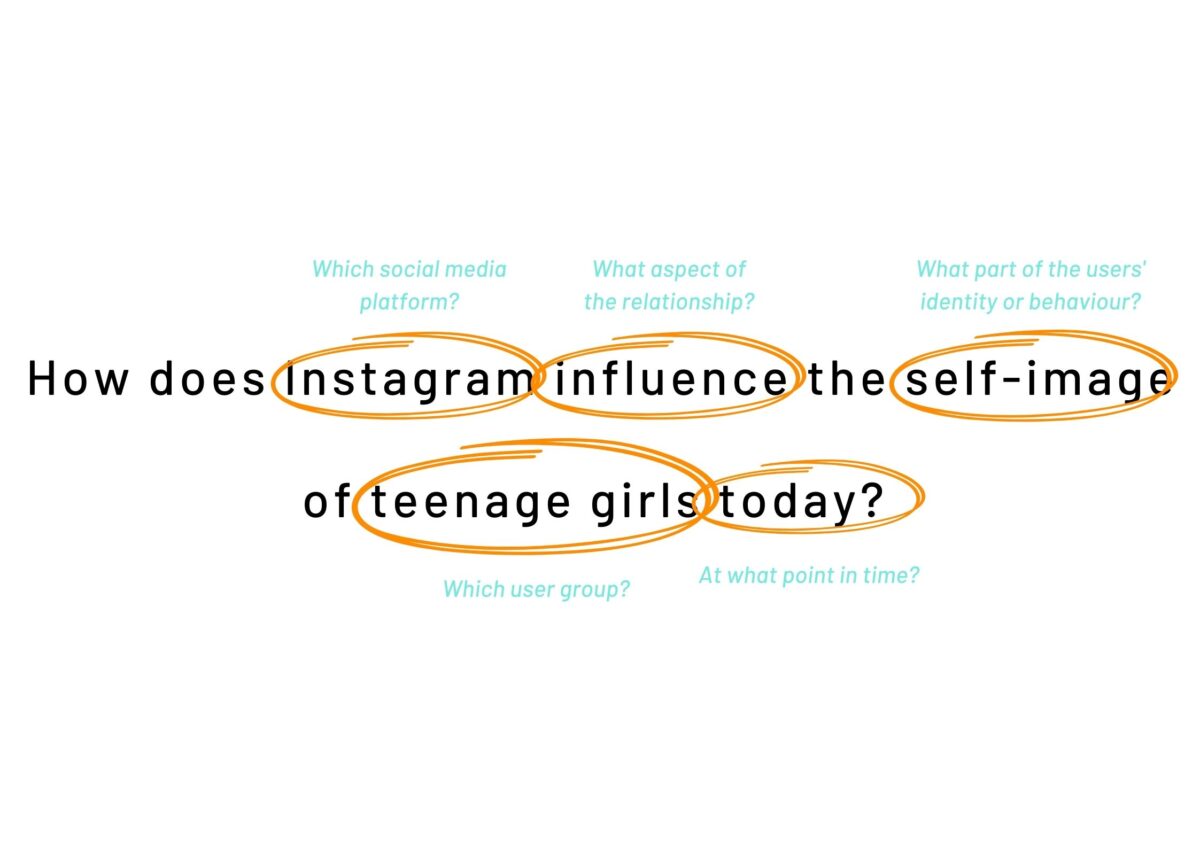- Do some preliminary research, both in libraries and online.
- Ask questions from different points of view.
- Be as precise as possible.
Preliminary research
The most important step when writing any academic paper is learning more about your topic’s characteristics. This can be achieved using the method of preliminary research. First, enter different keywords related to your topic into the search field of your library to get a feeling for the number of books that have been written about it. Next, skim the table of contents of some of those books to find out which aspects of your topic they are focusing on.
Conclusions of other papers can also indicate potentially fruitful questions that have yet to be addressed within a research paper of their own. You may already be able to identify the authors that have been most active in your field and whether or not their theses contradict each other and why. Also, remember that you need to have done some reading before you can judge the quality of your research question!
Be curious
In case you are faced with a very general topic, try to “problematize” it. This can be achieved by asking questions from different points of view, for example:
- How does this affect a certain group of people?
- Which cultural factors contribute to this issue?
- What is the relationship between the parties involved?
- When did this problem first arise?
- Where has this become most evident?
- etc.
Always be aware of your limitations: At the very beginning of your academic career, you do not yet have the skills to explore a field that has not been investigated by acclaimed researchers before you. No one is expecting any breakthroughs from you! However, the answer to your question should not be obvious from the start, as your paper needs to be more than just a summary of the literature available to you. After all, your paper is an opportunity for you to prove that you can critically evaluate the information you will find during your research and then draw a conclusion.
Get to the bottom of the topic
Please note that a good research question can never be answered with “yes” or “no” alone. You can answer the questions above to find a niche of the topic that sparks your interest. At this point of the work process, it is particularly important that you do enough reading on your future research question to be able to tell if it’s specific enough or, on the other hand, too specific. For example, don’t just ask about life in the 90s in general, but instead, focus on the kind of music people listened to in the 90s, or, even more precisely, the kind of music teenagers listened to back then, and how it mirrored their fears, worries, and dreams. In the end, you need to know what you are looking for!

- Don’t choose a question that can’t be answered to a satisfying extent within the scope of your paper!
- Don’t word your question in a way that aims for a descriptive answer instead of an analytical one.
- Don’t ask a yes or no question.
test yourself
Are you ready to find a research question of your own? Let’s find out!
What should you avoid when writing your first academic paper?
- Proofreading and editing your paper thoroughly
- Trying to answer a question that is too difficult
- Using proper citation and referencing
Solution:
B – Starting with a more manageable research question can help you develop the necessary skills and knowledge needed to tackle more difficult research questions in the future.
What does “skimming” mean?
- Reading something not in detail, but superficially
- Diving deep into a subject to fully understand it
- Adding cream to the top of a hot beverage
Solution:
A – Skimming is a reading technique used to save time, gain an overview of the text, and identify key points or main ideas.
What is the risk in trying to answer a very broad research question?
- It may be difficult to find enough information
- It can lead to a lack of focus and depth in the paper
- It may make you believe that you know everything about a topic
Solution:
B – A broad research question may lack focus and may not be specific enough to guide the research process effectively. This can make it difficult to narrow down the scope of the research and to identify relevant data or sources.
Why should you read papers by different authors?
- To copy from them
- To make your paper look more credible, guaranteeing a better grade
- To expose you to a variety of viewpoints
Solution:
C – Different authors approach research topics from their unique perspectives and experiences, using different research methods or techniques to study the same topic.
Can the conclusion of a paper be influenced by the research method that was used?
- Yes, depending on factors such as the sample size, the level of control over variables, and the type of data collected
- No, the research method is irrelevant to the conclusion
- Only in psychology
Solution:
A – Different research methods may produce different types of data, and the data collected may be analyzed and interpreted differently, depending on the research method used.

